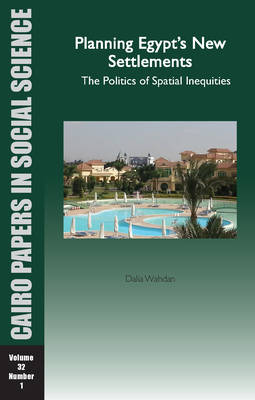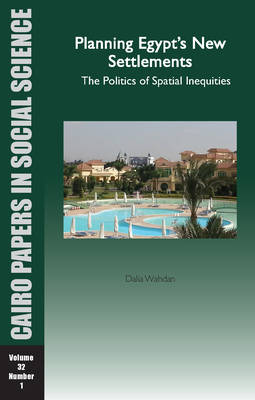
- Afhalen na 1 uur in een winkel met voorraad
- Gratis thuislevering in België vanaf € 30
- Ruim aanbod met 7 miljoen producten
- Afhalen na 1 uur in een winkel met voorraad
- Gratis thuislevering in België vanaf € 30
- Ruim aanbod met 7 miljoen producten
Zoeken
Planning Egypt's New Settlements: The Politics of Spatial Inequities
Cairo Papers Vol. 32, No. 1
Dalia Wahdan
€ 33,95
+ 67 punten
Omschrijving
This study critically analyzes the paradigms and practices of planning in Egypt since 1952. It interrogates the politics of national and physical planning while tracing the ideas that informed the establishment of new settlements in the country across the regimes of Nasser, Sadat, and Mubarak. Based on primary and secondary data, the study argues that under Nasser, plans often diverged from their blueprints and revealed the myth of 'technical objectivity' that underpinned the planning industry. It outlines the program of new settlements under Sadat and unveils the systematic exclusion of planners from decision-making apparatuses while institutionalizing 'profit-opportunism' in favor of private interests. The study then demonstrates the decline of planning under Mubarak and its emergence into a 'special purpose vehicle' in service of real estate developments associated with neoliberal shifts of the economy and skewed toward resource and privilege concentration in the hands of a few, thus further exacerbating uneven spatial morphologies.
Specificaties
Betrokkenen
- Auteur(s):
- Uitgeverij:
Inhoud
- Aantal bladzijden:
- 124
- Taal:
- Engels
- Reeks:
Eigenschappen
- Productcode (EAN):
- 9789774165344
- Verschijningsdatum:
- 14/06/2012
- Uitvoering:
- Paperback
- Formaat:
- Trade paperback (VS)
- Afmetingen:
- 137 mm x 211 mm
- Gewicht:
- 204 g

Alleen bij Standaard Boekhandel
+ 67 punten op je klantenkaart van Standaard Boekhandel
Beoordelingen
We publiceren alleen reviews die voldoen aan de voorwaarden voor reviews. Bekijk onze voorwaarden voor reviews.











